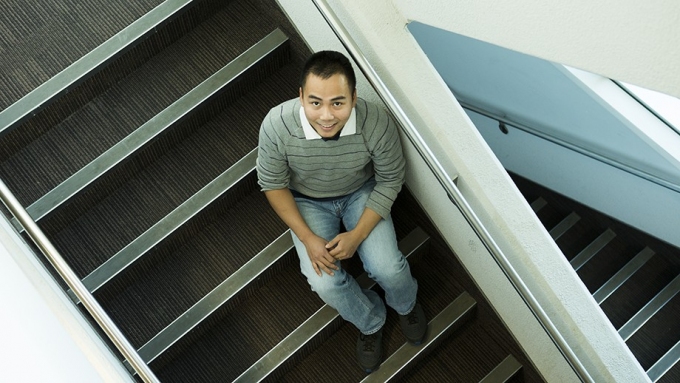A PhD student in the ANU Research School of Electrical, Energy and Materials Engineering has won Microsoft’s Quantum Challenge for his project working on simulating complex quantum systems.
The winner of the US$5,000 Grand Prize, Thien Nguyen, has been invited to Microsoft in the United States in July this year to receive his prize.
Thien, who is doing a PhD on quantum computer architecture as part of theARC Centre for Quantum Computation and Communication Technology, said he was surprised to have won.
“I had to learn a completely new tool in a very short time,” he said.
Quantum computers are predicted to be able to solve certain problems very quickly, that would be extremely time-consuming for conventional computers. However they are in their infancy, with a number of different hardware options under development, none of which have yet created a quantum computer with more than a handful of quantum bits.
“I want to be a contributor to the development of a real quantum computer that can outperform a classical computer,” he said.
Thien said he was happy to be invited to the Microsoft summit where he would meet great people from both industry and academia.
“We’ll need to collaborate with industry, so it will be a good opportunity to show them what we are working on,” he said.
Thien will attend the 17th annual Microsoft Faculty Summit, where he will present his work on simulating complex engineered open quantum systems in the Quantum Algorithms and Devices Workshop.
| His project, entitled “Simulating Dynamical Input-Output Quantum Systems with LIQUi | >” provided a way to simulate complex engineered open quantum systems by discretizing the physical system composition, and introducing a dissipation emulator gadget. |
The judges commented that his entry “enabled a quantum computer to be used to simulate open quantum systems as well as closed systems, and has important applications in real-world situations.”
Besides the grand prize, Microsoft also awarded four second prizes for students from University of Cambridge, University of Amsterdam, team between students of ETH Zurich and Imperial College, and University of Illinois Urbana-Champaign.

